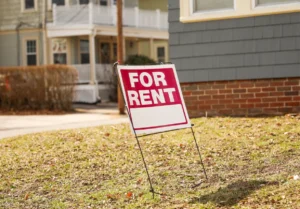
You Might Be Owed a Tax Refund—But the IRS Will Keep It If You Miss This Hidden Deadline
Written by Jason Malabute, CPA
As a real estate investor or professional, you know that every dollar matters. That’s why it’s important to be aware of a little-known IRS deadline that could impact your bottom line: the Refund Statute Expiration Date (RSED). This is the last day you or you can claim a refund or credit for overpaid taxes.
Many investors overpay throughout the year—whether through estimated tax payments, withholding, or simply not claiming all the deductions and credits they qualify for. Unfortunately, if you don’t file a refund claim before the RSED passes, the IRS can legally deny it, even if the money is rightfully yours.
In general, the RSED is three years from the date the original return was due, or two years from the date the tax was paid—whichever is later. This means you typically only have a three-year window to amend a return and request a refund. If you or your accountant misses that window, the IRS will keep the money, and there’s often very little recourse.
For example, if you filed a return in May 2020 but didn’t make a payment until April 2022, your deadline to claim that refund might not be until April 2025. But if you’re not tracking that, or if your CPA overlooks it, that refund could be lost forever.
This issue is more common than you might think, especially in real estate, where estimated taxes and amended returns are common. I’ve seen investors leave thousands of dollars on the table simply because they didn’t know about this deadline.
If you suspect this might apply to you or a client—or if you want to be proactive—now is the time to review older returns and payments before the window closes.
About the Author:
 Jason Malabute, CPA
Jason Malabute, CPA
Questions? Reach out to our author!
Email: [email protected]
Website: https://realestatetaxpro.com/
Instagram: @realestatetaxpro_official
Jason has been in the accounting industry since 2013. Over the years, he has honed his skills in tax preparation, tax planning, accounting, and payroll services, specifically working with high-net-worth individuals involved in real estate. His extensive experience has equipped him to address the unique financial needs and challenges that come with real estate investments. On the real estate side, Jason is not just an accountant but also an active investor. Since 2019, he has built a diverse portfolio that includes out-of-state rental properties, single-family homes, and large multi-family deals. He has successfully implemented buy-and-hold and BRRRR strategies and currently serves as a general partner on two multi-family syndication deals totaling 342 units. His combined expertise in accounting and real estate investment allows him to offer unparalleled insights and services to his clients.













 Accessibility
Accessibility